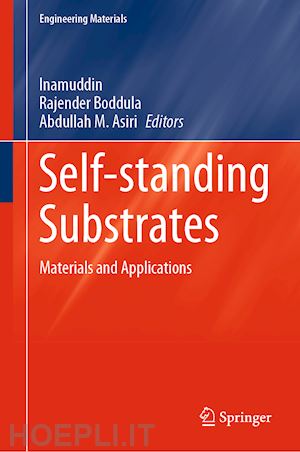Dr. Inamuddin is currently working as Assistant Professor in the Chemistry Department, Faculty of Science, King Abdulaziz University, Jeddah, Saudi Arabia. He is a permanent faculty member (Assistant Professor) at the Department of Applied Chemistry, Aligarh Muslim University, Aligarh, India. He obtained Master of Science degree in Organic Chemistry from Chaudhary Charan Singh (CCS) University, Meerut, India, in 2002. He received his Master of Philosophy and Doctor of Philosophy degrees in Applied Chemistry from Aligarh Muslim University (AMU), India, in 2004 and 2007, respectively. He has extensive research experience in multidisciplinary fields of Analytical Chemistry, Materials Chemistry, and Electrochemistry and, more specifically, Renewable Energy and Environment. He has worked on different research projects as project fellow and senior research fellow funded by University Grants Commission (UGC), Government of India, and Council of Scientific and Industrial Research (CSIR), Government of India. He has received Fast Track Young Scientist Award from the Department of Science and Technology, India, to work in the area of bending actuators and artificial muscles. He has completed four major research projects sanctioned by University Grant Commission, Department of Science and Technology, Council of Scientific and Industrial Research, and Council of Science and Technology, India. He has published 145 research articles in international journals of repute and eighteen book chapters in knowledge-based book editions published by renowned international publishers. He has published fifty-four edited books with Springer, United Kingdom, Elsevier, Nova Science Publishers, Inc. U.S.A., CRC Press Taylor & Francis Asia Pacific, Trans Tech Publications Ltd., Switzerland, IntechOpen Limited, U.K. and Materials Science Forum LLC, U.S.A. He is the member of various journals editorial boards. He is also serving as Associate Editor for journals, Environmental Chemistry Letter, Applied Water Science and Euro-Mediterranean Journal for Environmental Integration, Springer-Nature; Frontiers Section Editor, Current Analytical Chemistry, Bentham Science Publishers, Editorial Board Member, Scientific Reports-Nature, Editor, Eurasian Journal of Analytical Chemistry and Review Editor, Frontiers in Chemistry, Frontiers, U.K. He is also guest editing various special thematic special issues to the journals of Elsevier, Bentham Science Publishers and John Wiley & Sons, Inc. He has attended as well as chaired sessions in various international and national conferences. He has worked as a Postdoctoral Fellow, leading a research team at the Creative Research Initiative Center for Bio-Artificial Muscle, Hanyang University, South Korea, in the field of renewable energy, especially biofuel cells. He has also worked as a Postdoctoral Fellow at the Center of Research Excellence in Renewable Energy, King Fahd University of Petroleum and Minerals, Saudi Arabia, in the field ofpolymer electrolyte membrane fuel cells and computational fluid dynamics of
polymer electrolyte membrane fuel cells. He is a life member of the Journal of the Indian Chemical Society. His research interest includes ion exchange materials, a sensor for heavy metal ions, biofuel cells, supercapacitors and bending actuators.
Dr. Rajender Boddula is currently working as Chinese Academy of Sciences-President's International Fellowship Initiative (CAS-PIFI) at National Center for Nanoscience and Technology (NCNST, Beijing). His academic honors include University Grants Commission National Fellowship and many merit scholarships, study-abroad fellowships from Australian Endeavour Research fellowship and CAS-PIFI. He has published many scientific articles in international peer-reviewed journals and has authored six book chapters, and also serving as editorial board member and referee for reputed international peer-reviewed journals. He has published edited books with Springer, United Kingdom, Elsevier, CRC Press Taylor & Francis Asia Pacific and Materials Science Forum LLC, U.S.A. His specialized areas of energy conversion and storage, which include nanomaterials, graphene, polymer composites, heterogeneous catalysis, photoelectrocatalytic water splitting, biofuel cell, and supercapacitors.












